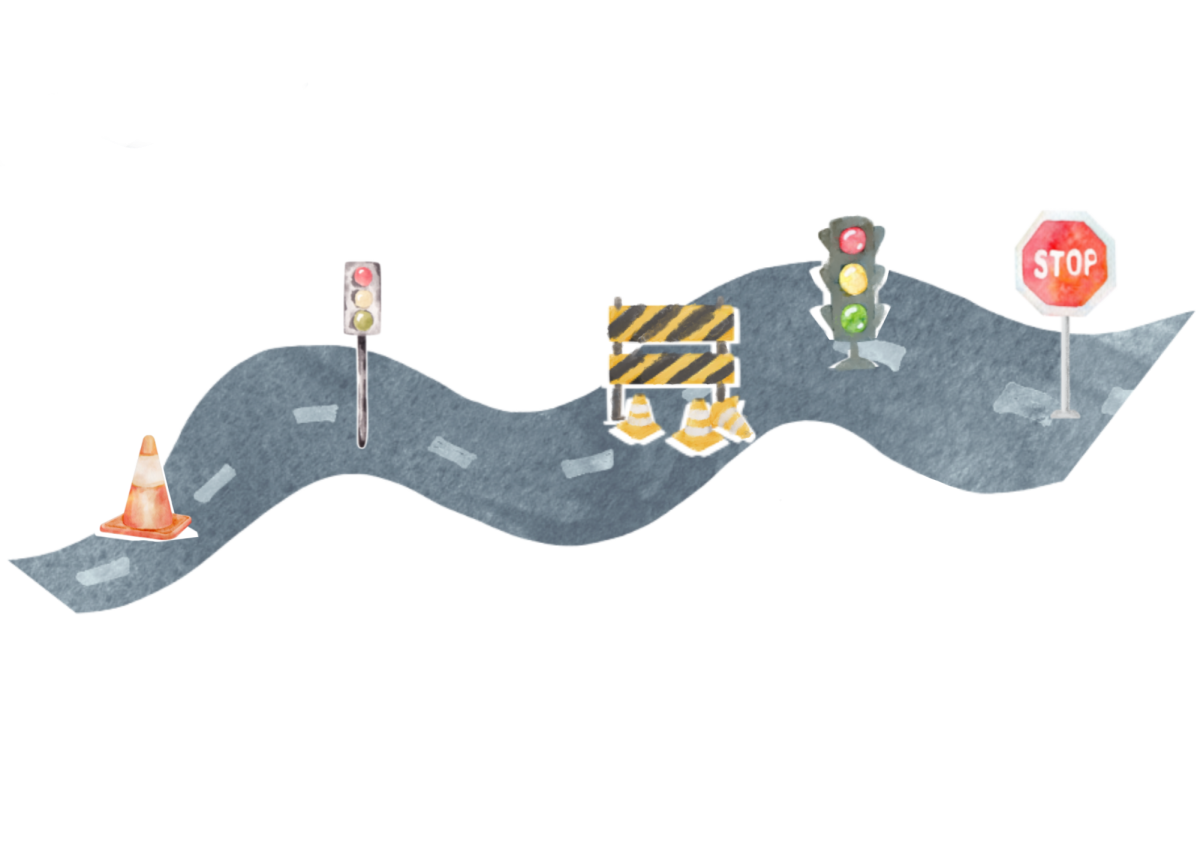In The Blues
Interviews with Laguna Blanca students for an insight on mental health within the school.
February 9, 2023
The piles of unfinished books and assignments, the sound of notifications signifying more work to come, and the voices of every teacher and coach ringing, telling tales of distasteful decline. This is the aura of high school depression that floats above thousands of students’ heads day after day with little relief. Weekends consist of unruly afternoons filled to the brim with emails, homework, studying, and games… It all can become significantly deteriorating exceptionally quickly.
One of the key contributors to depression is stress. High school students feel constant pressure and stress to do well academically, socially, and athletically. According to Mental Health America, 59.8% of youth have experienced depression, while 37% of high school students experience anxiety. The pressure to receive good grades, whether self-inflicted, peer, parental, or teacher-based stress, significantly contributes to the high rates of poor mental health.
“Good grades are the most important to me. I stress myself out to no end,” says freshman Evie Comis. “For me, the pressure to do well comes from myself, because I have really high standards for myself.” This self-inflicted pressure to do well in school imprints on Laguna students from the opening day of freshman year. While positive effects include pushing students to strive to do well, and pick up valuable habits, when it reaches a level of imbalance, they cannot escape the burden of always needing todo better. 
“The pressure I feel to do well comes from the hopes of getting into college,” says freshman JJ Stone. “Trying to achieve good things and get good grades so I can get into a good college is important to me.” Another dominating factor to negative mental health is college. The concept of colleges always having eyes on students and judging their every move leads to high amounts of anxiety and self-hatred, especially when a grade begins to drop or when any struggle begins to amount.
One of the most present stress factors is the copious workload students receive each night. “The most stressful part about school is the homework because some nights it is fine, but others I have after school activities, and then homework as well, and it keeps me up at night,” says JJ.
School can affect mental health in different ways, positively and negatively. “I love this school, but I feel like there is a lot of work and a lot of pressure to do well to get into a good college so you can do well in life,” says Evie. “School is good because I have a social environment and can be with my friends, but it can be hard because homework can change the tone of your day,” says JJ.
When entering high school, the expectation for students is to learn the standard subjects of English, math, and history courses. In reality, high school tends to be the evolution of learning how to juggle the grueling workload while also learning how to understand and handle one’s mental health. Senior Kincade Avery talked about his understanding of school and mental health. “Every year there’s a different challenge, it takes time to catch up with your mental state, and school makes that difficult sometimes.” Mental illness can spiral quickly without the right amount of support and balance of school and rejuvenation, which many students do not receive.


































